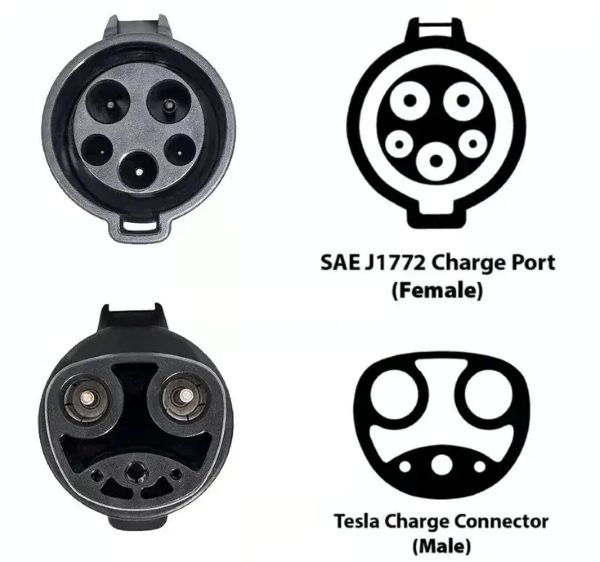


Understanding the J1772 Plug: The Backbone of North American EV Charging
The J1772 Plug: Powering North America’s Electric Vehicle Revolution
As a leading EV charger manufacturer in China, LiCB Charge delivers reliable AC and DC electric vehicle charging stations along with comprehensive charging solutions.
As electric vehicles (EVs) gain traction across North America, the J1772 plug—also known as the SAE J1772 connector or J-Plug—has emerged as the standard for AC charging. Developed by the Society of Automotive Engineers (SAE), this connector supports almost all non-Tesla EVs in the United States and Canada, providing a universal, reliable, and safe way to transfer power from charging stations to vehicles.
Nearly every major EV brand—Chevrolet, Ford, Honda, Hyundai, Kia, Nissan, Toyota, and more—uses the J1772 plug. Tesla drivers can also access these charging stations through a simple adapter. This broad compatibility promotes a unified charging infrastructure, making it easier for EV owners to find and use public chargers.
Design and Functionality
The J1772 connector features five pins: two for power (carrying 120V or 240V AC), one for ground, and two for communication between the vehicle and charger. This communication ensures the charger only delivers power once the connection is confirmed safe, preventing electrical hazards. Its sturdy, weatherproof design with locking mechanisms prevents accidental disconnections and guarantees consistent performance across many EV models and charger brands.
Charging Speeds
Designed for AC charging, the J1772 plug supports Level 1 and Level 2 charging:
Level 1 (120V): Adds about 4–5 miles of driving range per hour, suitable for overnight home charging using a standard household outlet.
Level 2 (240V): Adds approximately 25–30 miles of range per hour, requiring a dedicated EV charging station and 240V power supply. Level 2 charging is common both at homes and public locations, offering much faster charging than Level 1.
Though the J1772 plug does not support DC fast charging (which requires specialized connectors like CCS or CHAdeMO), its Level 2 speeds satisfy the needs of most daily drivers, enabling full overnight charging.
Why J1772 Matters
The J1772 plug’s widespread adoption is vital to EV growth for several reasons:
Universal Compatibility: Almost all non-Tesla EVs use this connector, enabling broad interoperability.
Wide Availability: Public charging stations across North America commonly feature J1772 ports, allowing convenient access.
Tesla Adaptability: Tesla vehicles can use J1772 chargers via adapters, further extending charger usability.
Safety and Smart Features: Communication pins enable safe, intelligent charging with current control and protection against overheating or overcharging.
Home Installation
Many EV owners install Level 2 J1772 chargers at home for faster charging. This requires a 240V outlet on a dedicated circuit (30-50 amps), proper breaker sizing, and professional electrician installation to ensure safety and compliance. Modern chargers often include smart features such as Wi-Fi, app control, scheduled charging, and energy monitoring.
Installation costs typically range from $750 to $2,100 but can be reduced through federal or local incentives, which often provide rebates for purchasing and installing EV charging equipment.
The Future of EV Charging
While the J1772 plug remains the cornerstone of AC charging, the industry is beginning to shift toward Tesla’s North American Charging Standard (NACS), which several automakers plan to adopt by 2025. Despite this trend, the millions of existing EVs using J1772 and the vast network of compatible chargers mean it will remain a key part of the charging ecosystem for years.
Conclusion
The J1772 plug has been fundamental in building a reliable, standardized EV charging infrastructure across North America. Its universal compatibility, safety features, and convenience make it a critical component in supporting the transition to electric mobility. Whether charging at home or on the road, the J1772 plug helps drivers power their vehicles confidently and efficiently—driving us closer to a cleaner, zero-emission future.Know more about Google SEO Directory
